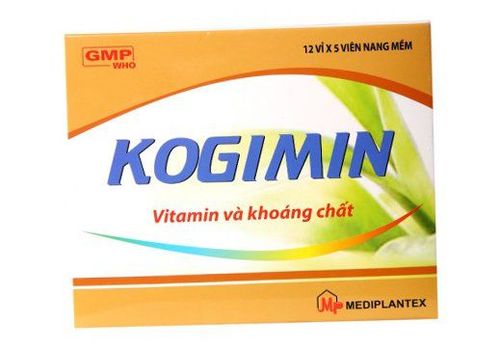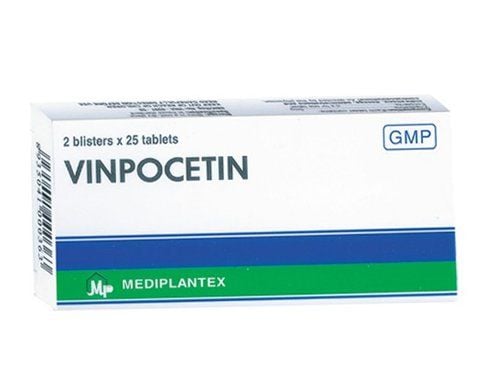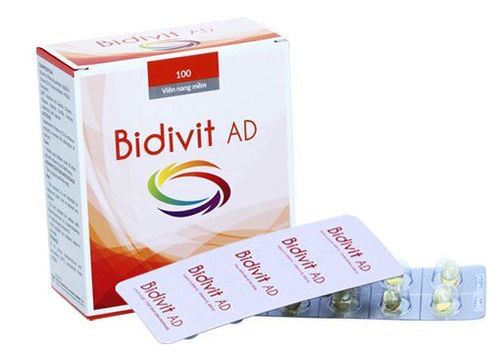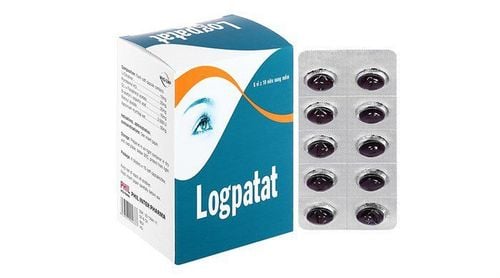This is an automatically translated article.
Regatonic is an eye tonic containing vitamins and nutrients, helping to treat eye diseases such as: nearsightedness, night blindness, visual impairment, macular degeneration, diabetic retinopathy...
1. What is Regatonic?
Regatonic is an eye tonic formulated in the form of a soft capsule. Each capsule contains the following ingredients:
10mg L-Citrulline: is a non-essential amino acid and a precursor to Arginine. Stimulates the immune system, relieves muscle aches and pains, and detoxifies ammonia; 25mg Vitamin B6: helps prevent eye diseases, especially macular degeneration in the elderly; 2500 IU Vitamin A : protects the integrity of the cornea, increases visibility in low light conditions, improves vision, prevents night blindness, reduces dry eyes or conjunctiva; 100mg high Vaccinium myrtillus and 25mg Vitamin E: have the same effect of preventing cataracts, diabetic retinopathy, reducing the feeling of eye fatigue; 25mg N-acetyl-L-aspartic acid: helps balance fluid in the brain, increases glutamate amino acid production in mitochondrial neurons, enhances nerve function and improves memory. In general, the drug Regatonic is used for the following purposes:
Supplementing essential vitamins and nutrients for the eyes; Treatment of vision impairment conditions such as: blurred vision, difficulty seeing, glare, night blindness, myopia, macular degeneration; Prevention of eye diseases for high-risk subjects such as: the elderly, students, office workers; Preventing eye diseases caused by diabetes complications such as: peripheral and central retinal degeneration, cataracts; Supplementing vitamin A and nutrients, helping postpartum women recover their vision quickly (this subject often has a temporary visual loss due to exertion at birth).
2. Instructions on how to take Regatonic
Dosage: Regatonic drug should be used as prescribed by a doctor or the patient can take it with a reference dose: 1 tablet x 3 times/day, lasting for 14 days per month. The patient can then consider repeating if needed.
How to use: Swallow the tablet whole, do not break, chew or crush the tablet. The drug should be taken after meals to increase absorption efficiency.
3. Side effects of the drug Regatonic
Side effects are rare when using Regatonic to treat eye problems, if any, the manifestations are usually mild and transient such as:
Gastrointestinal disorders: Nausea and vomiting, diarrhea, constipation, abdominal pain; Allergic reactions: rash, itching, rash; Overdose symptoms: dizziness, nausea, headache, possible coma and convulsions; When these symptoms occur, you should stop taking the drug and notify your doctor or go to the nearest medical facility for timely advice and support.
4. Note when taking Regatonic
Before using Regatonic in treatment, users should pay attention to the following issues:
Use with caution in children < 1 year old and patients who are taking other drugs containing vitamin A; Follow the correct dosage and usage instructions printed on the package. Do not stop taking, increase or decrease the dose on your own without consulting your doctor. When administering the drug to children, it should be done under adult supervision; Pregnant women taking more than 10,000 IU of vitamin A/day can lead to a risk of teratogenicity. Therefore, special caution should be exercised when taking the drug during the first 3 months of pregnancy. Regatonic is contraindicated in the following cases:
People who are hypersensitive to any of the ingredients of the drug; People who are suffering from an excess of Vitamin A; People with severe liver dysfunction; Patients with diseases: gallbladder stenosis, malignancy, gallbladder abscess; People with intestinal obstruction syndrome; People are unable to absorb vitamin A orally.
5. Regatonic drug interactions
Regatonic may cause some interactions with other treatments. Specifically:
Regatonic reduces the therapeutic effect of L-Dopa when used concurrently; Oral contraceptives may increase vitamin A plasma concentrations; Vitamin K may exert an antagonistic effect on vitamin E; Concurrent use of Neomycin, Cholestyramine, Liquid Paraffin reduces the bioavailability of Vitamin A contained in Regatonic. To avoid adverse interactions affecting the effectiveness of treatment and to ensure safety during drug use, patients should inform their doctors about all medications they are taking.
Follow Vinmec International General Hospital website to get more health, nutrition and beauty information to protect the health of yourself and your loved ones in your family.
Please dial HOTLINE for more information or register for an appointment HERE. Download MyVinmec app to make appointments faster and to manage your bookings easily.













